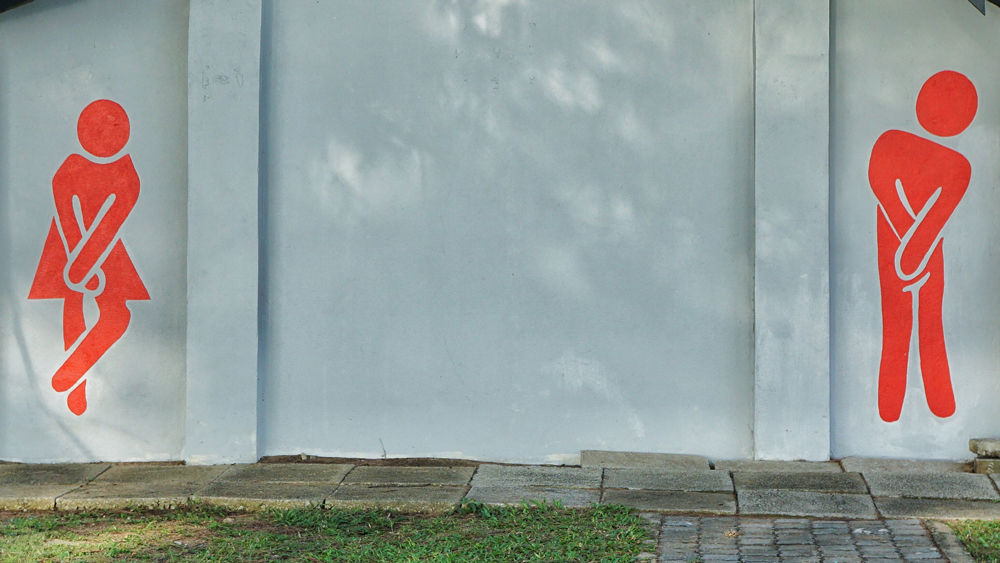When To See A Doctor About Problems With Your Gut
Don’t let embarrassment stop you from seeking expert advice if you’re struggling with these symptoms

There’s no shying away from the fact: gut problems are an embarrassing topic. And that can lead to people keeping any such problems to themselves rather than going to the doctor to get them checked out.
Sometimes just ignoring a problem in the hope it goes away will work out, but sometimes it won’t, so it’s worth stressing that you really should go to the doctor sometimes, because suffering in silence benefits no-one and could allow potentially serious problems to develop.
We spoke to Dr Anton Emmanuel, consultant gastroenterologist at University College London Hospital, for a rundown of the symptoms you absolutely shouldn’t ignore, along with some general advice on how to look after your gut.
What symptoms should you see a doctor about?
The thing that’s most commonly a problem is pain. Obviously you worry about abdominal pain, but most pain is not caused by anything sinister. People should be particularly concerned about pain if it’s combined with what we call alarm features. These are weight loss, blood loss from the gut – from the top or bottom end. Another one is difficulty swallowing – that shouldn’t be ignored.
You should also see a doctor if there’s a significant change in your bowel patterns. Don’t worry if you’ve always been going three times a day or twice a week – it’s a change that you need to worry about.
People also often don’t think about whether there is a family history of bowel illness – things like coeliac disease or Crohn’s disease. Knowing the family history can change the way we look at these things.
We’re really keen that people don’t ignore embarrassing symptoms, like the urge to open your bowels. Sometimes it can be a really disabling symptom as people worry about leaving the house. There’s quite a lot we can do to help people, so we’re really keen to pick up on this. That’s one not to ignore.
Get the Coach Newsletter
Sign up for workout ideas, training advice, reviews of the latest gear and more.
If you have pain without other alarm features what should you do?
Try to work out the cause of the pain. Keep a diary of your dietary and toilet habits to see if any patterns emerge. There are also tracking apps that will help you do that. If you see a specialist they’ll try to find clues in this way. We don’t want people to live with pain – we want to find the cause of it to improve people’s quality of life.
See related
- How To Improve Your Gut Health
- How Exercise Can Help Your Gut Health
- Gut Check: Are You Eating Enough Microbes?
Do you have some general advice on how to look after your gut health?
People should try to sit down for a meal if possible. Eating on the go is not ideal for your gut. It tends to mean you get more problems like gas and it makes reflux worse.
Avoid eating just before bedtime. It’s not about eating early or late – if you go to bed at one in the morning you can eat at ten if you want – but avoid going to bed on a full stomach. That’s not a very effective way of digesting. It tends to make things like reflux and heartburn much worse.
Eat two or three meals a day. Your gut has developed to have food come into it episodically rather than grazing like an animal. We’re better off sticking to formal mealtimes if we can.
Within the actual content of your diet, we’re keen to avoid people being too restrictive. We see people getting a bit… I don’t want to say faddy, but they go on a diet which could be very restrictive and they miss out on certain nutrients. Before going on a diet where you’re cutting things out, go and talk it through with an expert.
Dr Anton Emmanuel is a Love Your Gut Week spokesperson and medical director for charity Guts UK

Nick Harris-Fry is a journalist who has been covering health and fitness since 2015. Nick is an avid runner, covering 70-110km a week, which gives him ample opportunity to test a wide range of running shoes and running gear. He is also the chief tester for fitness trackers and running watches, treadmills and exercise bikes, and workout headphones.
